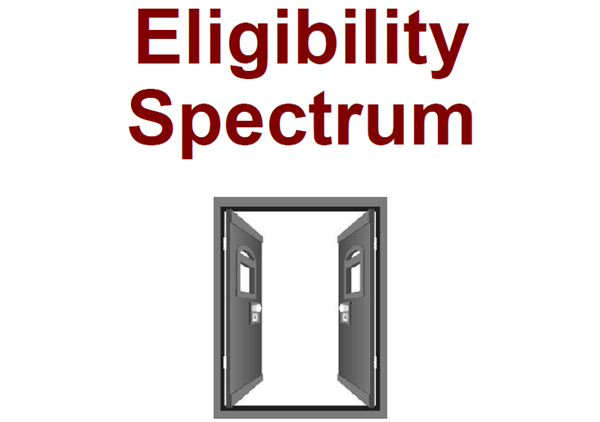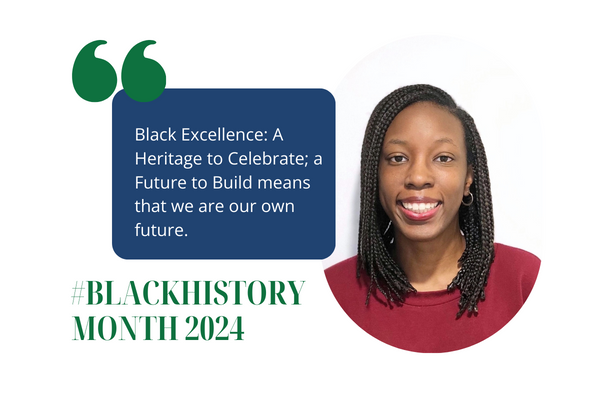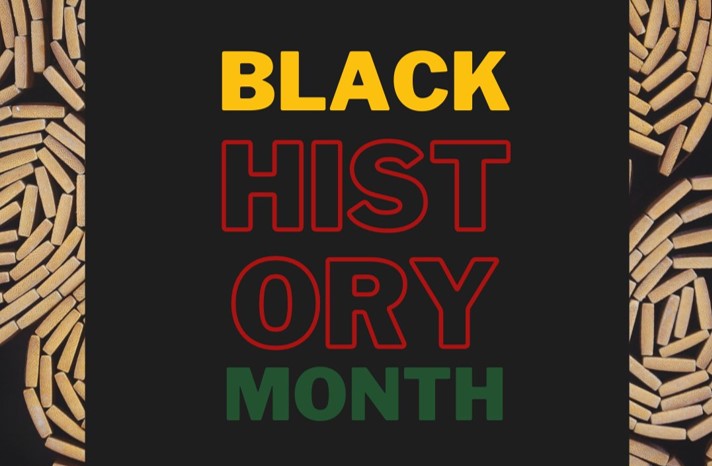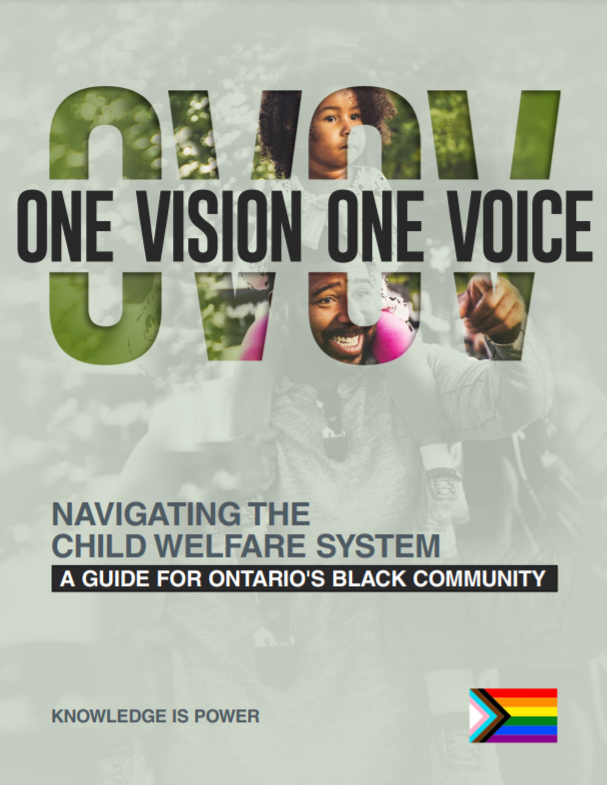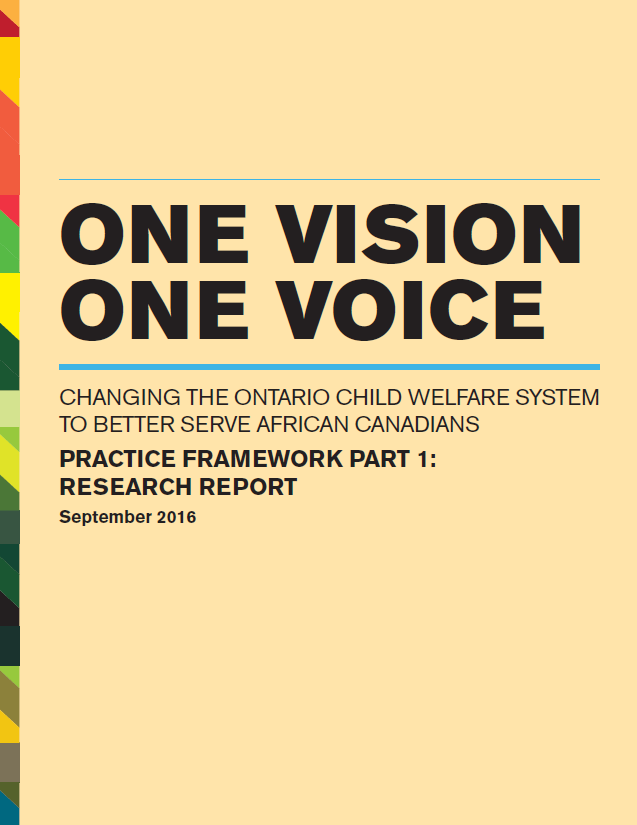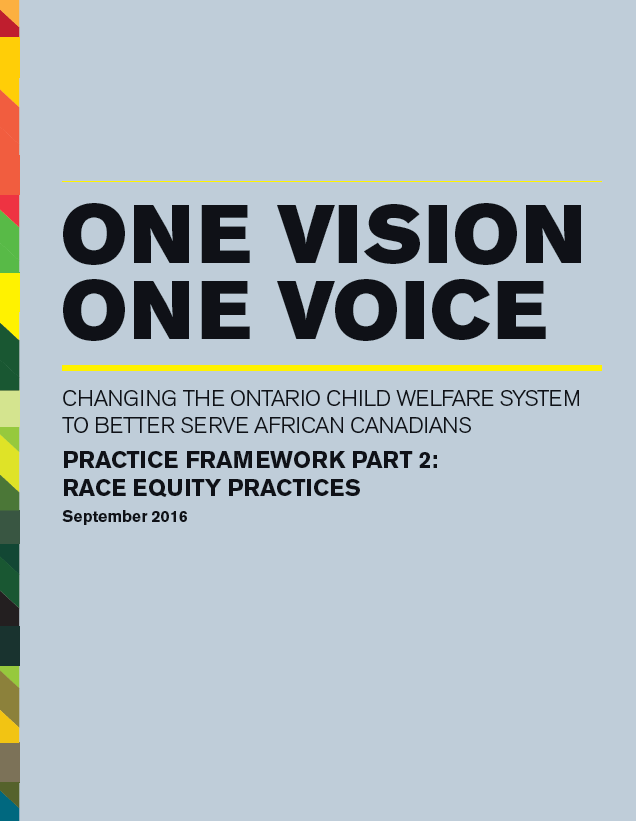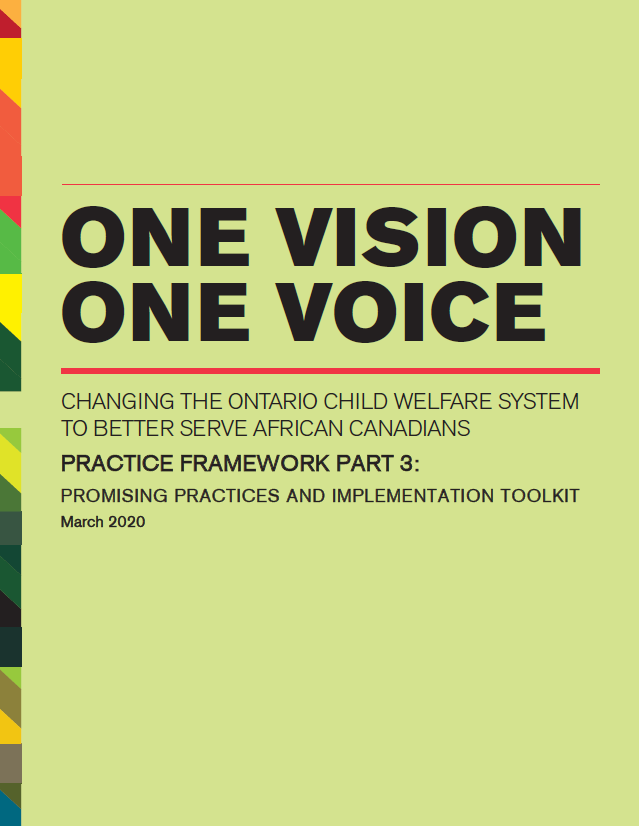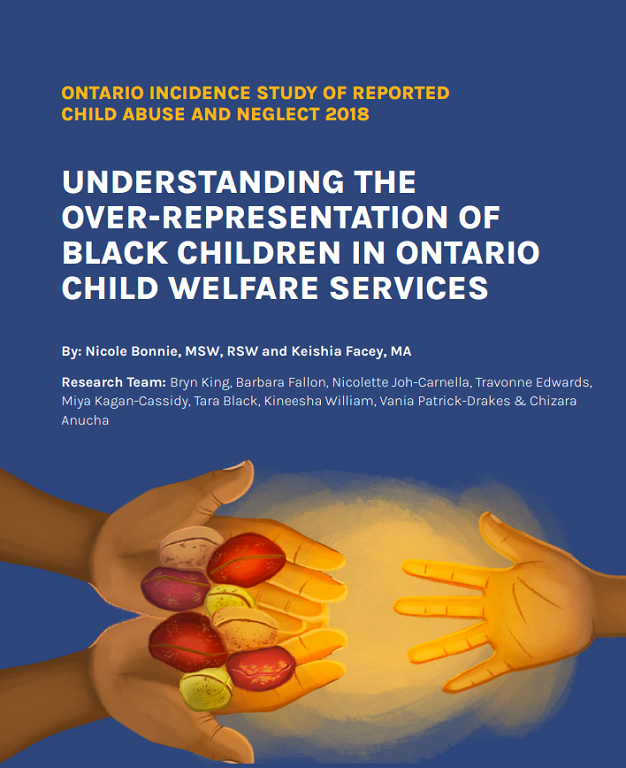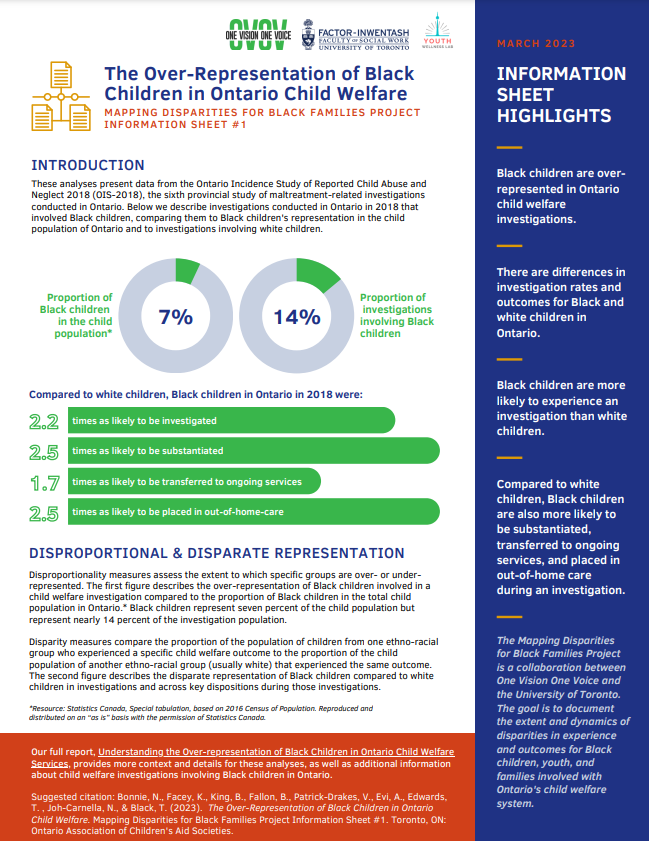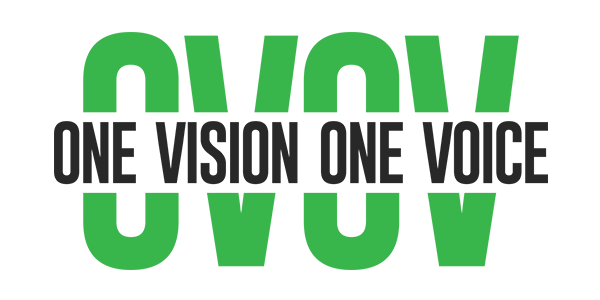
Changing the Ontario Child Welfare System to Better Serve African Canadians
One Vision One Voice is a program led by the African Canadian community. It is funded by the Ontario Ministry of Children, Community and Social Services through the Ontario Association of Children’s Aid Societies and addresses the overrepresentation and experiences of disparities faced by African Canadians after coming into contact with the child welfare system.
One Vision One Voice (OVOV) was launched in 2015 and included three project phases, until it received annual, ongoing funding in 2021.
The program focuses on addressing anti-Black racism and supporting improved outcomes and equitable services for African Canadian children, youth, and families in Ontario’s child welfare system. This includes through the development of culturally appropriate, family-centred services; anti-Black racism training; and leadership and networking opportunities for African Canadian youth and child welfare staff. OVOV is taking a cross-sectoral approach, with attention placed on how multiple systems, particularly education, police, and healthcare, interact to create and maintain racial disproportionality and disparities in child welfare.
Some of the program priorities include:
1. Child Welfare Policies and Practices
OVOV prioritizes the collection and analysis of data regarding Black children, youth, and families involved in child welfare. Doing this allows us to remain aware of data trends, and to be able to impact changes in legislation. We are already making significant strides in impacting policy through initiatives like the OIS 2018 report, the Disparity Mapping Project in partnership with the University of Toronto, and our inaugural Policy Forum. OVOV also organizes and facilitates regular staff meetings for Black staff in the child welfare system to provide a safe space for discussion, strategizing, and support.
2. A Focus on Leadership
Tackling anti-Black racism in any system must start at the top. OVOV offers leadership support via initiatives such as the African Canadian Leadership Mentorship Program and the Confronting Anti-Black Racism in Child Welfare for Leaders Course to increase understanding of anti-Black racism and its manifestations, as well as to provide increased opportunities for Black employees to occupy positions of leadership and to improve organizational culture.
3. Community Engagement
OVOV is informed and led by the African Canadian community. We continue to build relationships with community and grassroots organizations to enable community empowerment and knowledge exchange. We do this through youth engagement efforts like PowerUp!, system navigation support for the Black community, the Black Youth and Family Services Directory, and via regular consultations with our African Canadian Provincial Advisory Committee.
4. Service Delivery
OVOV advocates for the delivery of culturally relevant services for African Canadian children and youth in care. We offer a trauma-informed African Canadian Service Delivery Best Practices framework which agencies can reference to guide their own culturally relevant service delivery. OVOV also meets regularly with a sector advisory committee known as the CAS Reference Group (comprising Directors of Service, Equity leads, Supervisors, OVOV leads, and others) to receive sector-specific feedback. This feedback assists in guiding and informing OVOV’s work.
One Vision One Voice (OVOV) welcomes child welfare redesign. Embedding equity approaches, frameworks, and policies into system redesign is critical to addressing overrepresentation and challenging oppressive structures and practices.
Child welfare redesign provides a critical opportunity to prioritize early intervention and use community-based prevention strategies and process mapping to strengthen families and respond to the needs of African Canadian children, youth, and families.
The Ministry of Children, Community and Social Services, community stakeholders, child welfare agencies, and OACAS have responded to the urgent call to action expressed by African Canadian children, youth, and families to address the severe harm they have experienced within child welfare through consistent and on-going funding of the OVOV program.
Anti-Black racism is systemic and insidious, permeating systems, legislation, policies, and practices with detrimental impacts on Black families.
We acknowledge the historical legacies of colonialism that produced and sustain anti-Black racism across institutions in Ontario, including within child welfare.
We underscore the importance of embracing decolonization as a tool to dismantle institutional and systemic oppression.
The pursuit of equitable outcomes and social justice for Black children, youth and families cannot be done in silos. The work is and must be the responsibility of everyone working within and alongside child welfare, including leaders, decision makers, frontline staff, community organizations, and mandated referrers.
Many have already engaged in incredible sacrifice to speak out and take meaningful action against oppression. We pay homage to those who continue to resist and challenge economic exploitation, homophobia, racism, gender discrimination, religious bigotry, and other oppressive constructs.
We honour those who have devoted their lives as tireless champions in the pursuit of justice, equity, human rights, and other forms of social and economic justice. Those who have challenged oppressive systems and who have constructed affirming and equitable examples for all of us to follow, we stand on your sturdy shoulders, and commit ourselves to working alongside you in solidarity for the purpose of liberation.
For decades, African Canadian communities across the province have raised concerns about the overrepresentation of African Canadian children in care of Children’s Aid. African Canadian parents and families have also raised concerns about how they are treated by child welfare staff and the overall system.
Issues in Ontario reflect the issues raised by African Americans throughout the United States. Compared to their White counterparts, African Canadian children are:
- More likely to be referred to a Children’s Aid Society by educators, police, and medical professionals
- More likely to be removed from their homes
- Less likely to be returned to their families
- More likely to grow up in foster care without being adopted or finding another permanent home
The two key issues are:
- Disproportionality: the over- or under-representation of certain groups (e.g., racial) in a public child welfare agency relative to the group’s proportion in the general population.
- Disparity: when services to one segment of the community are allocated differently, such as an increased or decreased likelihood of entering or exiting the services system or care.
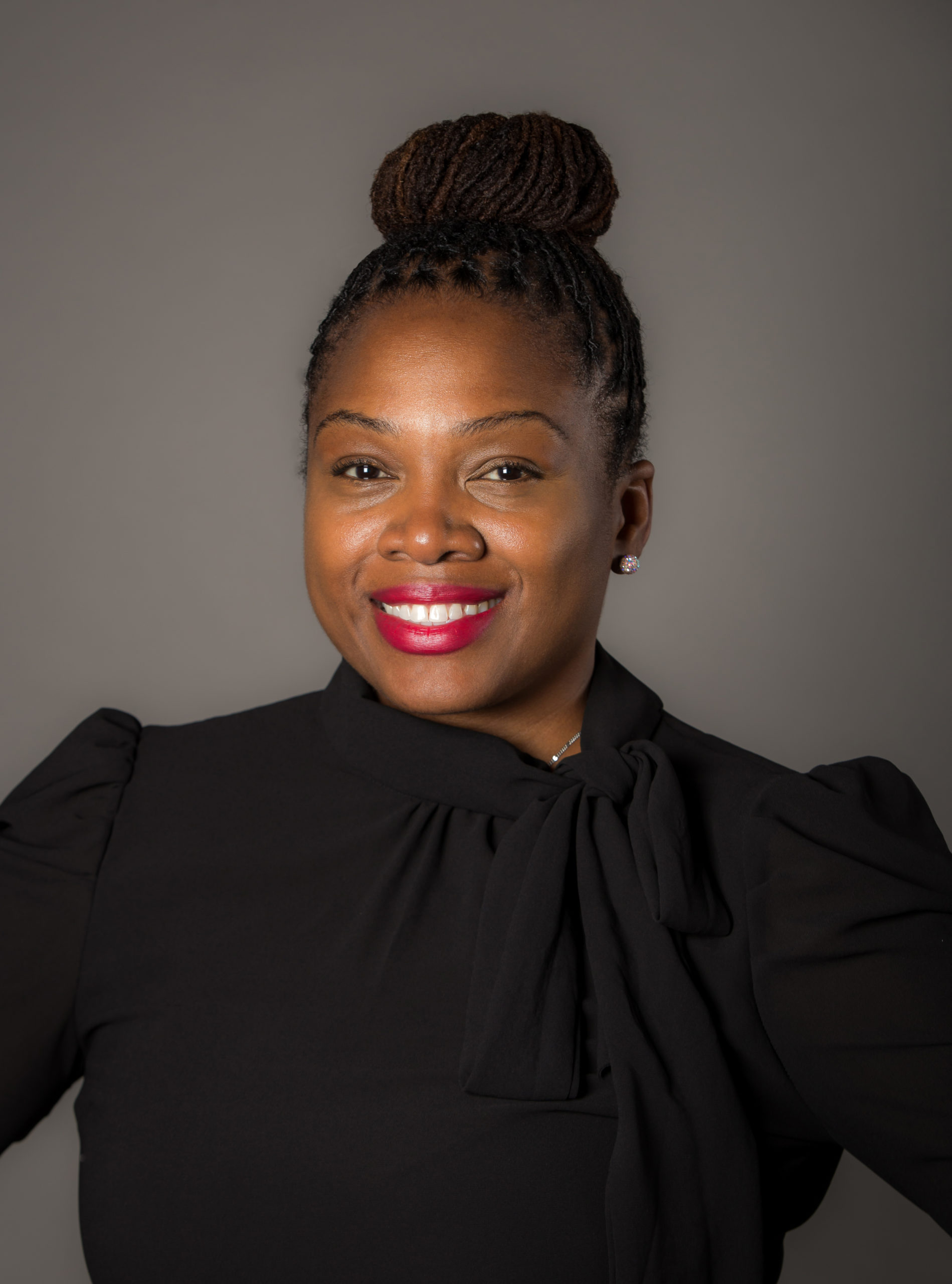
Keishia Facey, Program Manager
In 2020, Keishia joined the Ontario Association of Children’s Aid Societies (OACAS) as the program manager of One Vision One Voice (OVOV). As program manager, Keishia leads the development of implementable policies and strategies to address the anti-Black racism that is embedded within the child welfare sector. Vania Patrick-Drakes, Program Analyst
Vania Patrick-Drakes, Program Analyst
Vania Patrick-Drakes is a social science researcher and mental health professional. After eleven years in Barbados, Vania was excited to return to Canada and join OVOV as a program analyst to help address the disparities and disproportionalities that exist for Black children, youth, and families in Ontario.
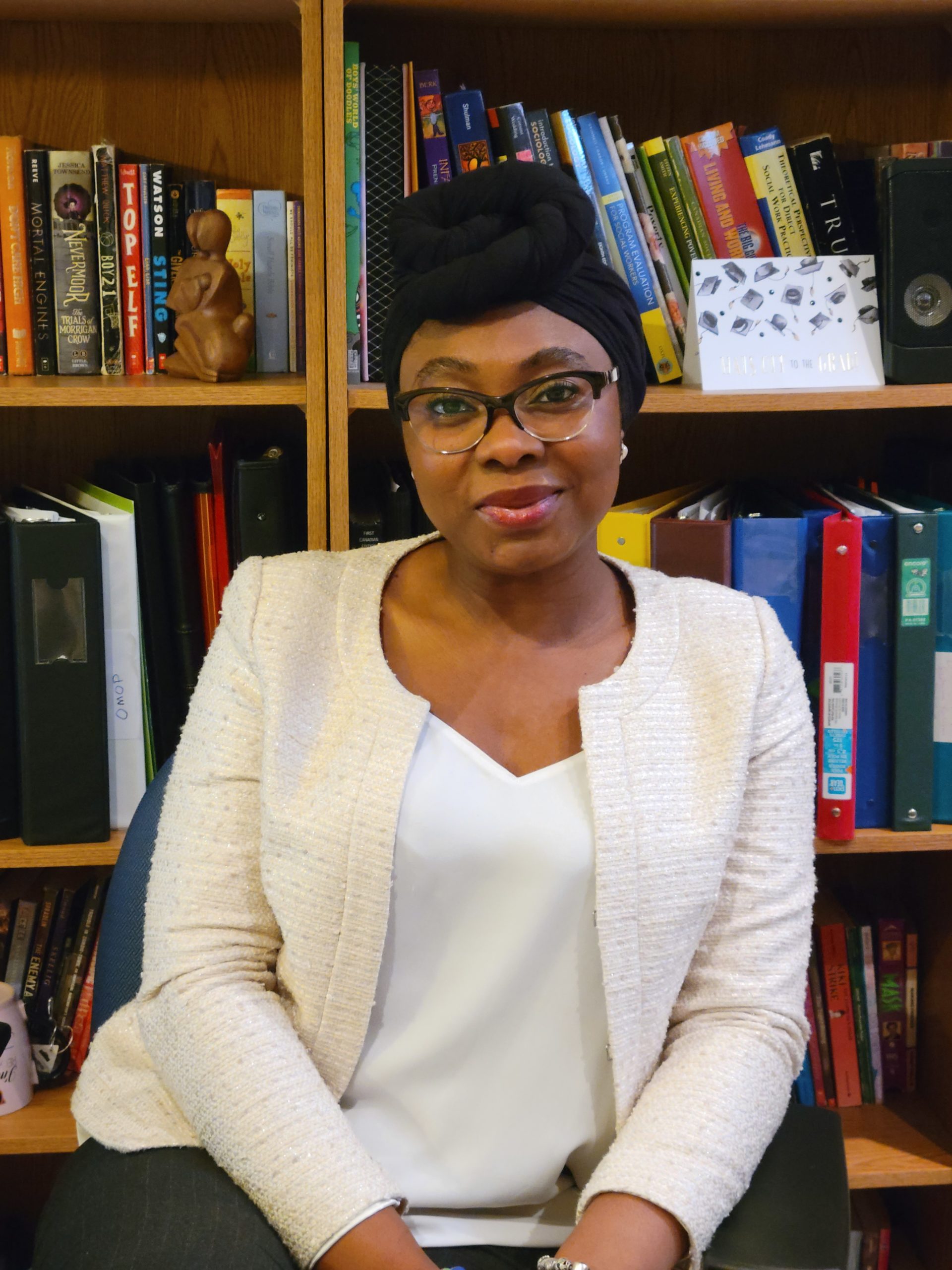
Ajirioghene Evi, Community Engagement Specialist
Ajirioghene (Ah Jiri Or Ganeh) Evi is passionate about working with individuals, families, groups, or communities that are culturally diverse and not necessarily the celebrated norm. After almost two decades in public service work, this continues to be the driving force for her. She is elated in her role as Community Engagement Specialist on the OVOV team.
 Shantana Hunte, Program Coordinator
Shantana Hunte, Program Coordinator
Shantana has been working in human and social service sectors since her early undergraduate years. Her journey in the community development and youth services began with her work-study position with the UTSC Imani Academic Mentorship Program. Shantana has experience working with children and youth offering services for behavioral, academic and social support. Prior to joining OACAS, she worked with the Toronto Foundation for Student Success as a Program Coordinator.
We Welcome Your Ongoing Feedback
Email: onevisiononevoice@oacas.org
Join the Conversation Online
Join the conversation on social media through Twitter, Facebook, or Instagram by telling us how Ontario’s child welfare system can better serve the African Canadian population.
Follow us @1Vision1VoiceCA and use the hashtag: #1Vision1Voice
What's Next
Knowledge Mobilization
Catch Up
Follow Us
Latest News
Our Resources
Video Highlights
PowerUp! 2023 – Highlights
Turning Evidence into Action: OVOV
Understanding the Over-representation of Black Children in Ontario Child Welfare Services
2018 Power Up Symposium
All In: African Canadian Child Welfare Symposium
What are the Race Equity Practices?
Click on a Practice to read its description.
Commit to courageous leadership.
It is the responsibility of the organization’s Board, Executive Director / Chief Executive Officer and senior management team to set the direction, specify organizational expectations, and allocate resources, lead conversations on anti-Black racism, spearhead anti-racism organizational change efforts, and engage the organization in courageous conversations if racial disproportionality and disparities are to be identified and addressed.
Collect and analyze data to measure racial disproportionality and disparities
Through the use of data, child welfare agencies are able to assess the extent of racial disproportionality and disparities, identify the underlying causes, as well as measure progress toward improving service outcomes.
Evaluate programs and monitor performance.
Ongoing program evaluation and performance monitoring allows organizations to understand which programs, services, and practices are working, the impact they have on African Canadian children, youth and families, and where changes are needed to achieve desired outcomes.
Allocate appropriate and dedicated resources.
When procuring services (e.g., group homes, outside paid resources, and mental health beds), each agency should include an assessment of the service provider’s ability to reflect and appropriately serve African Canadian children and youth in care and their complex needs.
Engage African Canadian parents and communities.
Child welfare agencies must develop ways of engaging parents and community members not only in the short term, but also with the goal of developing and maintaining relationships over the long term.
Engage and educate mandated referrers.
As the first stage in the child welfare continuum, mandated referrers can contribute to the overrepresentation of African Canadians in the child welfare system. As such, it is important that child welfare agencies analyze referral data and provide critical feedback and additional training to referral organizations and professionals as needed.
Establish effective internal complaint mechanisms.
African Canadian families involved with the child welfare system need to be informed of the complaints mechanisms available to them. Further, these mechanisms should be assessed to determine how well they serve the needs of and address the issues raised.
Enhance human resource management.
Within child welfare agencies, there is a need to ensure that African Canadian staff, and indeed all staff, are able to raise concerns as needed and advocate for changes to better serve African Canadians without fear of reprisal.
Provide daily supervision, ongoing training, and supports for staff, volunteers and caregivers.
Ensure agency staff, volunteers, and caregivers are well-trained in anti-racism, with a focus on anti-Black racism, and that they receive daily supervision that supports the application of this knowledge to support better outcomes for African Canadian children, youth and families.
Establish collaborations and partnerships.
Ensure ongoing engagement of African Canadian parents and the local African Canadian community to support the work of the child welfare agency and the success of African Canadian children, youth and families.
Strengthen the ability of caregivers to support African Canadian children and youth.
Child welfare agencies can support positive outcomes for African Canadian children and youth in care by placing them with kin as the first option and African Canadian families as the second option, as well as by ensuring caregivers are well trained, supported, and able to support the development of a strong and positive racial identity and the maintenance of cultural connections.
